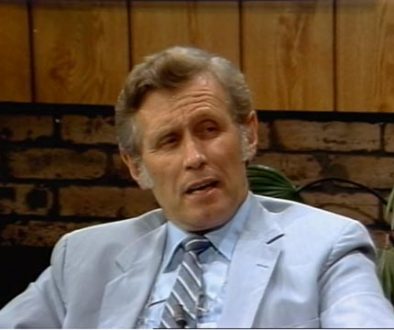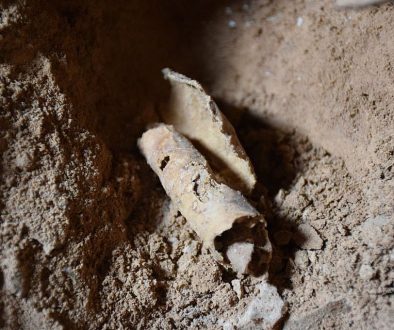IN SEARCH OF NOAH’S ARK: Part 7 — Hassan Baba, ‘keeper of the Ark’
DOBI, Turkey (BP)–Following are journal entries from two men in search of Noah’s Ark.
CHUCK: After our battle with the rocky hillock, our drive is pretty peaceful. We arrive at the Durupinar site, named after a Turkish military captain who reported an unusual formation pointed out to him by a local shepherd. This is the site researched by Ron Wyatt and David Fasold, which the Turkish government formally identified as the resting place of Noah’s Ark.
The claim is controversial in some sectors. Wyatt was trained as a medical technician, not as an archeologist, and professionals criticize his findings as amateur. Some question his unorthodox methods and his claims to other, almost-unbelievable discoveries. Groups like our partners in the Ark Research Project believe that if the remains of the Ark are to be found, it will be on the higher reaches of Mt. Ararat itself. That is the reason we have come to climb.
In 1986, however, Turkish scientists and government officials examined Wyatt’s evidence from the Durupinar site and decided the unusual formation there was indeed the remains of the Ark. There is a visitors’ center, with signs that point “To Noah’s Ark.” In the distance, just northeast of the visitors’ center, lies a petrified stone formation shaped like a giant boat.
Here we meet Hassan Baba, the “grandfather” keeper of the Ark. He warmly invites us in and tells us in both Turkish and broken English how he was good friends with Wyatt and Fasold. He says he was there when they began their research — and that he had a full head of black hair at the time. Pictures on the wall show him with both Americans and others. For more than 20 years now, he has tended to the Ark and its environment. He shoos away intruders and brash camera people and won’t allow TV cameras or crews near the site without permission from the government.
He is a gracious and delightful host, willing to talk for hours about the site and his involvement. But this would be another (20-year) story, so we bid him farewell. This man deserves the respect he has earned as the keeper of the Ark.
Back at the hotel, we eat a little and inspect the fifth-floor area where we plan to interview Ismet. We see our new friend, but tonight he ignores us. It appears something is wrong. We try to speak to him, but he brushes us off. Something definitely is amiss. We retire from this otherwise perfect day with this last, troubling thought.
Day 5
We meet for breakfast at 7:30 a.m. I have been wondering what could possibly be wrong and how we may have insulted or otherwise upset Ismet. The explanation isn’t long in coming.
The Baptist tells us that he couldn’t sleep last night and went downstairs, where he happened to see Ismet. He still was brusque but told the Baptist that the “jandarma” and secret police had been asking about us. He said he was told we were filming but did not seem to be on the list of people with permits to do so. He had been interrogated and didn’t much care for it.
Tom and I are shocked. We were told by the Turkish consulate in New York and by other experienced people that permits were unnecessary. We are absolutely stunned.
I rush to the Internet café at 8:30 and wait for the door to open. I quickly get the telephone and fax numbers of the American consulate, and Tom, the Baptist and I hurriedly search for a phone to call the consulate. I make the call and explain our situation. The consulate asks us to call again in 20 minutes. We get three different numbers for the Turkish Ministry of Culture and Tourism. The Baptist makes that call, since it will be easier for him to converse.
The Ministry of Culture and Tourism also is extremely helpful. We can do everything required by the government via fax and receive our permits as early as the next day. We wait until well after lunch for the fax from the ministry to arrive. Once it arrives, copies have to be made at a local copy shop, an individual permit for each of us has to be completed, and everything has to be faxed back to the ministry before 5 p.m. so it can be authorized and returned by tomorrow.
While we are waiting in the hotel lobby, sipping tea, Ismet walks by. I comment that he is a very busy man and this opens a dialogue. We explain that we were totally unaware of the needed permit and that we had taken steps to conform to the legal requirements. We apologize for the inconvenience we caused and Tom presents Ismet with his climbing jacket as a gift of apology and sincere thanks. The conversation blossoms into a spirit of caring and of sharing information.
We get everything completed by 3:30! With that out of the way, we are mentally exhausted. We rest an hour or so and go back to the lobby. We eat dinner, stop at the Internet café for messages and advise our contacts as to what is happening. We return to the hotel by 7:30.
We meet Ismet in the lobby. We have been accepted by the climbing federation and will be able to accompany them to the first base camp at 11,200 feet, filming and interviewing as we go. It appears, although we did not intend to, that we are going up the mountain if the permits come through.
After drinking tea with some of the climbers, Ismet approaches us. The local military commander wants a word with Tom. The Baptist interprets because the commander does not — or will not — speak English. I go upstairs to write the day’s journal. The commander is not a happy camper. Evidently, he heard we went directly to Ankara for our permit. We are about to get overnight what ordinarily takes weeks.
The commander has had a little “raki,” the local liquor, and he is sharp and irritated, almost nasty. Although he isn’t speaking English, his tone speaks volumes. According to the Baptist, the Turkish secret service, local police, jandarma and military are all looking for two Australians and an American who also have been shooting in the area. The commander is demanding information we don’t have, and he doesn’t believe that we don’t know the whereabouts of at least the American.
The commander tells Tom that we need to see him after we obtain our permit and that we will need the military’s permission, as well as the permit from Ankara. I smell another fee coming up. You know, all Americans are rich and have money to burn. We’re on a shoestring budget, and if we have many more of these extra charges, they are going to send us packing.
The Turkish secret service has been following us since we landed in Ankara, mostly because we have some pretty sophisticated camera equipment to film the Victory Climb, the climbing group’s ascent to Ararat’s summit. Anyone with a commercial-grade camera will be followed until they are processed through the Ministry of Culture and Tourism and meet local guidelines and permit requirements. Even after that, you are closely watched, as filming of the military and certain areas of the mountain is strictly forbidden.
In the past, Turkey has been burned by some unscrupulous journalists who were looking for stories about the Armenian genocides and the treatment of Kurdish peoples in the ancient past. Still and video cameras are forbidden in most of the smaller villages and sheepherder areas on and around the mountain. News events like the Victory Climb are usually OK to shoot, but you can’t stray from your planned path.
This has been an eye- and wallet-opening experience. The expenses here are not simply room and board. The prices for permits, faxes, telephone, peripherals and, yes, even bribes will dig into even the most well-lined pocket.
We didn’t get to sleep until well after midnight, discussing our plans and alternatives. We definitely would not do anything illegal and need to conform to local policy. As for obtaining permits, we’ll have to wait until tomorrow to see if they come through.
Our prayers comfort us, and we know we will be directed in the path He intends.
NEXT: The outpost commander
Originally published at https://www.bpnews.net/bpnews.asp?ID=20963





